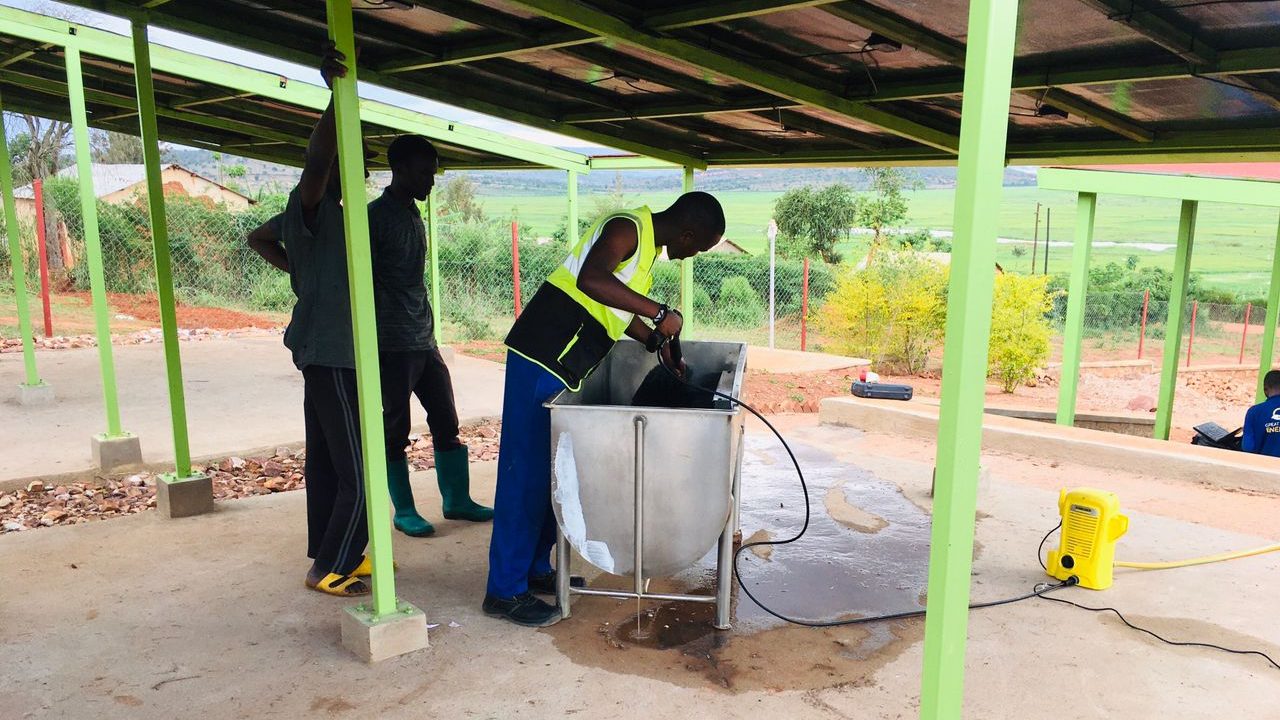
CASE STUDY: Remote Monitoring Systems for Milk Collection Centres in Rwanda (Solapak Development Ltd)
Overview
SPECIFIC offers companies specialist knowledge and equipment to help improve their existing products or processes.
Solapak Development Ltd provide stand-alone sustainable energy solutions for use in developing world rural economies. They wanted to expand their services to include remote monitoring systems for energy-poor dairy communities and they had engaged with two milk collection centres in Rwanda.
The dairy sector in Rwanda is crucial for rural development, poverty reduction, and food and nutrition security. It offers a pathway out of poverty for the large number of households keeping livestock, and for those who provide services and value addition throughout the supply chain.
Milk collection centres with capacities of 500-5000 litres a day are the gateways of milk flow from small-scale farmers to the dairy processing plants. Yet of the 850 million litres of milk produced each year only 20% is collected by the centres due to high diesel costs and power outages.
Solapak, with funding from Energy Catalyst, installed a solar electric generator at a milk collection centre in Kageyo, Eastern Rwanda in the summer of 2022 to provide reliable electricity for cooling milk 365 days of the year. With hundreds of dairy farming households dependent on the collection centre, Solapak needed to install a monitoring system so they could ensure the generator was operating effectively.
SPECIFIC advised Solapak on the various options and considerations for their monitoring system, and assisted the company in configuring and testing it in a laboratory environment prior to deployment in rural Rwanda.
A second monitoring system was installed at Karushuga Milk Collection Centre that operates using a grid connection. Here the monitoring system enables Solapak to understand the quality of service provided by the grid in rural Rwanda, both in terms of outages and power quality.
By considering the overall operation of milk collection and cooling Solapak is able to offer higher value services through provision of solar electric generators, supporting milk transport, hygiene and quality as well as cooling. Delivering this effectively has been enabled by the monitoring system that was made possible through the support of SPECIFIC.
Project partners: Solapak Development Ltd
Aims
- Provide expertise and facilities to specify and test the remote monitoring systems before installation at Kageyo Milk Collection Centre and Karushuga Milk Collection Centre.
- Use data acquired from the monitoring systems to identify issues and opportunities to improve efficiency.
- Reduce electricity consumption, cost, and loss of milk at the collection centres.
Impact:
- Kageyo Milk Collection Centre is making a profit for the first time. Farmers are being well paid for the milk they deliver and the number of farms supplying the centre is growing.
- The monitoring system at Kageyo has allowed them to identify when an inverter was inadvertently turned off, limiting the flow of electricity to the storage batteries. This was quickly identified and rectified.
- In the first two months of operation at Kageyo over 1 tonne of CO2 has been avoided.
- Monitoring enabled Solapak to recognise the opportunity to provide Kageyo staff with means and know-how to use a jet-wash and milk can cleaner to improve their hygiene practices, a measure that will reduce loss and improve health.
- At Karushuga Milk Collection Centre, the monitoring system provided Solapak with the means to quickly identify underperforming cooling equipment and a rapid intervention was made, resulting in a 33% reduction in electricity consumption for milk cooling. For a single cooler this saving equates to almost $3 per day, sufficient to employ an additional worker.
One year on…
- The MCC has been operationg for a whole year with no lost services.
- Daily milk volumes have increased from 120L to 1700L.
- Contributing farmers have risen from 15 to 98 (i.e. a significant increase in families being paid a fair price for the milk they provide).
- 6 Tonnes of CO2 have been avoided.




